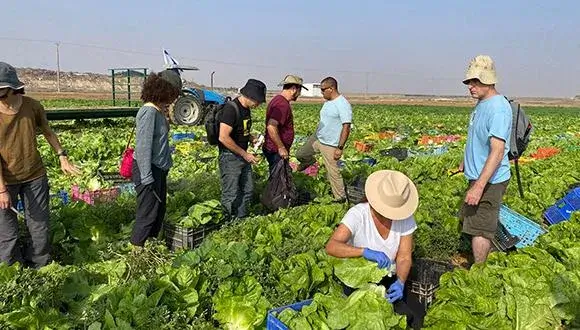A new report reveals the donation and volunteering rates of the public in the third week of the "Iron Swords" war

A new report by Tel Aviv University and Ben Gurion University of the Negev presents for the first time the contribution and volunteering patterns of the Israeli public in the "Iron Swords" war. The report examined the third week of the war, and the findings reflect an extraordinary picture of solidarity - the rate of donors and volunteers is much higher than data received in the past - in routine and emergency situations.
For example, the average weekly financial contribution per person was NIS 458 - almost double that of similar reports received in the past. Also, almost 2/3 of the public (62%) contributed to the various initiatives (to organizations, to communities, to campaigns and directly to people) with money or the equivalent of money, including donating blood and breast milk. This rate (62%) is particularly high compared to the rate of donors of 42% in 2020 - the year the corona crisis broke out, and compared to the rate of donors of 47% in 2019, which was a normal year.
In addition, the high level of solidarity is also reflected in the fact that many members of the public donated to more than one organization: 62% of donors to emergency targets reported donating equipment, food or other help to soldiers and security forces. 53% donated to the families of the bereaved, the families of the missing and kidnapped and to aid the victims. 21% donated to hospitals and rescue organizations. 12% in aid and rehabilitation of settlements. 9% of the public donated to other organizations.
The report was prepared by Dr. Hagai Katz from Ben Gurion University of the Negev and Dr. Osnat Hazan and Attorney Galia Pitt from the Institute of Law and Philanthropy at Tel Aviv University. The report is based on the answers of 563 people representing Israeli society (women and men, Jews and non-Jews, at different levels of religion, education and income and at different ages over 18).
The report also examined the issue of volunteering and it shows that 41% of the respondents volunteered in some way (including a social or community initiative), this compared to 31% in 2019, and 22% in 2020.
The researchers point out that the data reflect an unprecedented response from the public: while in the shadow of the Corona crisis (2020) the rate of donors and volunteers was smaller than in normal days (2019), in the shadow of the Iron Swords War the rate of donors and volunteers is much higher than all previous data - in normal and crisis, and the amounts of financial donations are doubled .
